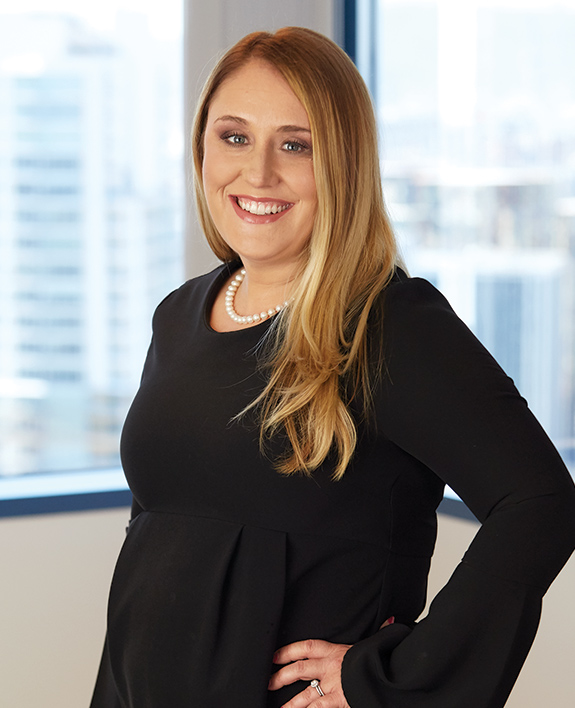Fearless Money Talk
Where candid conversations attempt to steer the course toward financial growth and fulfillment.

Where candid conversations attempt to steer the course toward financial growth and fulfillment.

Click and read the candid answers from Halbert Hargrove’s advisors

Looking for advice on secret credit card debt. Feeling trapped and unsure how to proceed. How can I tackle this?

Looking to buy a second property for rental use. How to best fund it?

Retirement panic: I’m pushing 40 and I have NOT even started.
Send us your fearless money questions and our advisors will review and share their candid answers on LinkedIn. Follow us on LinkedIn.
Fearless Money Talk is about real conversations.

"Building wealth is not just about accumulation, but nurturing the right habits, making informed decisions, and staying committed to the journey ahead."

"Every family faces life changes and hard choices. Navigating them with clarity and strategy ensures a stronger financial foundation for the future."
It’s a question I hear often from clients regardless of the current mortgage interest rate environment. There’s no easy & quick guidance on what to do. Making the right choice necessitates a careful consideration of your own individual circumstances.
It may help to apply this framework to lead us to the right path for you. For starters, let’s reassess your current financial position. Do you already have an emergency savings bank account funded with 3-6 months of your average household expenses? Do you also not have any high-interest credit card or student debt? If you answered “yes” to both then we can consider applying surplus cash flow towards a mortgage or investing towards your retirement or other future goals.
Making extra mortgage payments could make sense if you are risk-averse since paying off your mortgage might align more with your comfort level. Moreover, if you’re nearing retirement, reducing debt might be a priority. Conversely, investing surplus cash for future goals could be appropriate if the expected return on investments is higher than the interest rate on your mortgage. Furthermore, if retirement is far off, investing for the long-term could be more beneficial.
It's also important to carefully consider the tax implications of either option. Sometimes, mortgage interest can be tax-deductible, while investments might have capital gains tax implications.
The right choice is one that not only makes mathematical sense but also aligns with your peace of mind and financial security.
You’re not wrong to feel overwhelmed by the sheer volume of information sources available nowadays on ways to invest. Investing does involve taking a certain amount of risk but there are ways to invest that may reduce that risk over time by following a few basic and prudent measures.
The first step is to establish an emergency savings account funded with a balance equal to 3-6 months of your average monthly expenses. Having this account available will spare you from having to pursue more expensive ways of raising cash to pay for unplanned expenses.
Next step is to determine your goals for investing. Goals should be reasonable and measurable. One such goal could be retiring by age 65.
You can then determine an investment plan for each goal that’s consistent with the level of risk you’re comfortable taking along with your investment timeline. Specifically, it’s important to create a portfolio of investments that have different return and risk profiles. Generally, that should over time reduce the overall risk of the portfolio.
Lastly, it’s important to monitor your plan but to also stick with it during periods of short-term market volatility. That may help alleviate concerns you feel about meeting your long-term goals.
Last received September 2023 based on 12/31/2022 data.
CNBC enlisted data provider AccuPoint Solutions to assist with ranking.
Disclosure:
This content contains general information that is not suitable for everyone and was prepared for informational purposes only. Nothing contained herein should be construed as investment advice. Halbert Hargrove (“HH”) is a registered investment adviser. For additional information about HH, including its services and fees, request the firm’s disclosure brochure or visit advisorinfo.sec.gov.
The information presented is pulled from questions that have been asked through public websites, but there is no identification provided about the person that asked the question. HH may edit the questions to make them less fact specific and more appropriate for a general audience. The content is provided for illustrative purposes only and does not represent an actual client or an actual client's experience. Every situation is different and your best practices may vary based on your individual circumstances. HH makes no representation as to whether any statements made were profitable or would have been profitable for any person in the past. No portion of the content is to be interpreted as a testimonial or endorsement of the Firm’s investment advisory services.
The information contained herein is based upon certain assumptions, theories and principles that do not completely or accurately reflect any one person’s situation or a whole exposition of the topic. All opinions or views reflect the views of HH as of the publication date and are subject to change without notice. HH does not provide tax or legal advice and nothing contained herein should be considered as personalized financial advice. You should contact your financial advisor, tax advisor, accountant and/or attorney before making any decisions. All information is provided solely for convenience purposes and all users thereof should be guided accordingly.